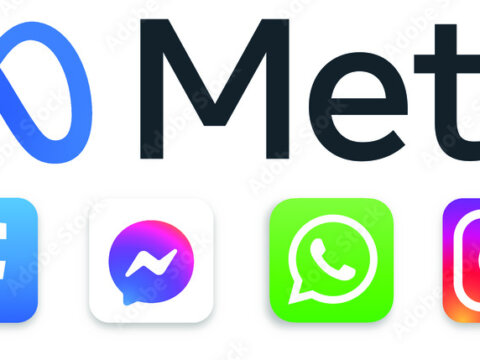Author: Morgann
BigTech is Inherently Unable to Provide Privacy
Let’s face it, big tech companies have a love-hate relationship with our privacy. On one hand, they assure us that our data is safe and secure. On the other hand, they make their fortunes by collecting, analyzing, and selling our data to third-party advertisers. It’s a classic case of mixed signals, and it’s not surprising that many people are skeptical about trusting big tech companies with their private communication.
Yandex Market Share Grows
Yandex, the Russian tech giant often referred to as “Russia’s Google,” has exceeded analysts’ expectations by posting a 54% jump in Q1 revenue to 163.3 billion roubles ($2 billion) and a return to profit after posting a net loss in the same period last year. This is a remarkable feat for the company, especially given the challenges it has faced in recent years.
Google Makes Big Step in Race to AI
Google has announced that it is consolidating its artificial intelligence (AI) research groups into one unit in a bid to remain competitive in the AI race. The move will see the Brain team from Google Research and DeepMind, a subsidiary of Google’s parent company Alphabet, merged into one team. The reorganization is designed to accelerate progress in AI by combining all the talent into one focused team backed by Google’s computational resources.
The Intersection of Chatbots and Politics
Artificial intelligence (AI) is increasingly being adopted in the political sphere as a tool for generating speeches, emails, and even drafting laws. However, experts have warned against the rapid uptake of AI tools like ChatGPT, which is famous for fabricating “facts”. ChatGPT, released in November 2021 by US firm OpenAI, has already made its way into politics, particularly as a way of scoring points.
The Future of Chatbots
Chatbots have become increasingly popular in recent years, with advancements in natural language processing (NLP) and artificial intelligence (AI) making them more human-like and capable of providing engaging conversations. However, the applications of chatbots go far beyond just answering queries and providing information.
Meta Increases Use of AI, Raising Value
Meta Platforms Inc, the parent company of Facebook and Instagram, announced on Wednesday that it is using artificial intelligence (AI) to drive traffic to the two social media platforms and increase ad sales revenue. The news sent Meta shares soaring by 12% in after-hours trading, adding more than $50 billion to its market value. The announcement came after Google parent Alphabet Inc and Microsoft Corp both posted strong results on Tuesday, leading to a rally in tech shares.
5 Reasons to Get a Password Manager ASAP
In today’s digital age, passwords have become an essential part of our lives. We use them to access our email, bank accounts, social media, and much more. With so many passwords to remember, it’s no wonder that many people resort to using the same password for multiple accounts or writing them down on paper. However, these practices can put your sensitive information at risk.
Sick of Siri? You’re not the only one!
According to sources, the teams at Apple working on Siri and artificial intelligence are experiencing a great deal of chaos. Organizational dysfunction and a lack of ambition have hindered Apple’s efforts to improve Siri and the backend technology that powers it.
Social Media and Its Impact on Society
Social media has become an integral part of our daily lives. It has transformed the way we interact, communicate, and consume information. The rise of social media platforms such as Facebook, Twitter, Instagram, and LinkedIn has revolutionized the way we connect with each other. It has also had a significant impact on society and its changing landscape. In this blog post, we will discuss the impact of social media on society and its changing landscape.
Twitter Removes Legacy Verified Checkmarks
Twitter’s new owner, Elon Musk, has begun to enforce policies that threaten to remove blue checkmarks from formerly verified Twitter accounts. The blue checkmark previously denoted accounts that had been verified for authenticity and were given to accounts of celebrities, journalists, and media outlets. However, users seeking verification will now have to pay $8 a month for Twitter Blue, a controversial subscription program under which any account can obtain a blue checkmark. The rollout of these changes on Thursday was chaotic, with numerous high-profile users asserting that they would not pay for blue checkmarks under the new policy.
Rumors of Apple finally loosening the reigns for iOS 17
Apple may finally loosen its grip on its centralized operating system. Apple’s iOS 17 update is expected to bestow several new changes onto iPhone users, including the highly anticipated feature of sideloading apps.
Determining What’s Real: Reality vs. Deepfakes
Artificial intelligence has come a long way in recent years, and it is now possible for AI-generated images and videos to deceive even the most discerning viewer. Unfortunately, the digital tools available to detect such deepfakes are still struggling to keep up with the pace of content generation, likely because there is a little financial incentive for companies to invest in this area.
Deepfakes, which refer to manipulated images and videos created using AI technology, have been a cause for concern for several years now. While some deepfakes may seem harmless, such as the recent image of Pope Francis wearing a Balenciaga coat, others have the potential to cause serious damage. For example, deepfakes can be used to manipulate elections or to create false allegations of sexual misconduct.
Questionable Ethics Come to Light in the Race to AI
In the world of artificial intelligence (AI), tech giants are racing to keep up with the latest advancements. However, Google’s rush to win the race to AI has led to ethical lapses, according to employees. The November 2022 debut of OpenAI’s popular chatbot sent Google into a frenzy to weave generative AI into all its most important products within a matter of months. This meant that the group working on ethics that Google had pledged to fortify was disempowered and demoralized. The staff responsible for the safety and ethical implications of new products were told not to get in the way or try to kill any of the generative AI tools in development.
Could Generative AI Become the Next Generation OS?
As we know, an OS is just a tool for managing different components of a computer. It’s what makes our laptops, smartphones, and other devices work smoothly. But what if the OS could be replaced by AI platforms? That’s what companies like Google, Microsoft, and OpenAI are exploring. The concept of generative AI is a key driver of this shift. These are systems that create content that mimics what a human may produce. Google and Microsoft have already started using this technology for search, but there’s so much more that can be done. Apple, Google, and Microsoft have built so much functionality directly into their OSes that it’s sometimes hard to see where the OS ends and an app begins. With AI platforms, developers could build their products around these platforms instead of an OS.
Ideal Password Manager Candidates
As we wait for a future without passwords, many individuals and organizations still struggle with managing countless login credentials. A password manager creates an encrypted vault that securely stores credentials, protected by a master password. Most consumer-focused apps can also create unique, random passwords and support safe credential sharing between friends and family members. Some also contain extra perks such as detecting reused passwords and monitoring your accounts for possible data breaches.













